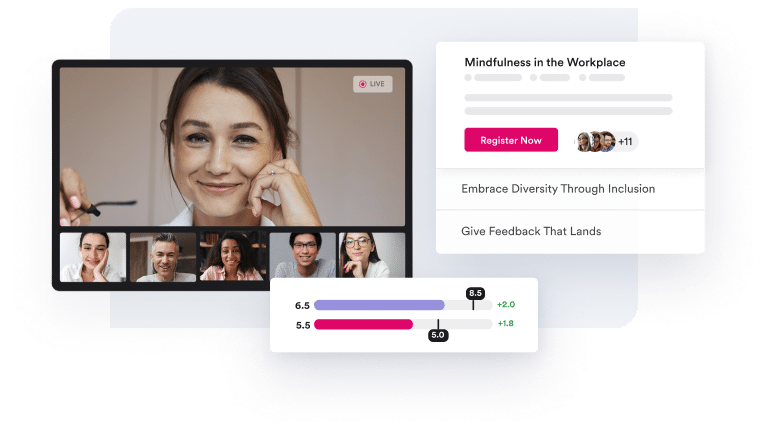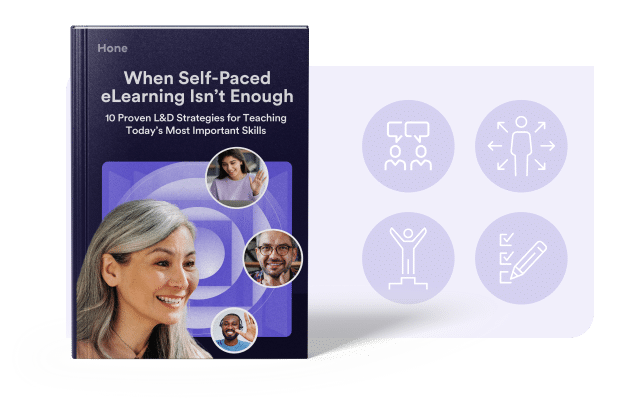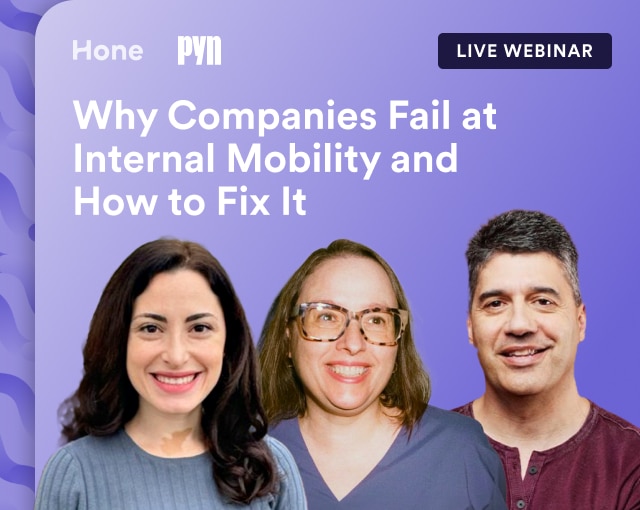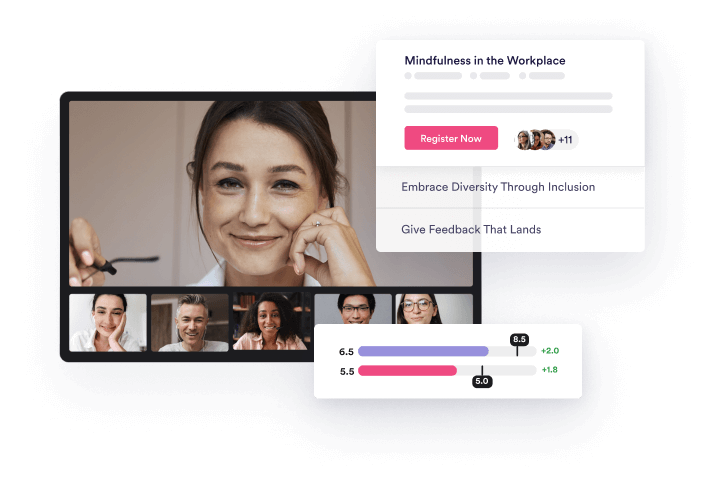Beatrice Kim: So we are talking about a working parents guide to well-being in the midst of a pandemic. Oftentimes when I talk with parents, it's like, what does that mean right now, Bea? I feel like my frame of reference is completely different from where it would have been pre-COVID. So we'll talk a little bit about that and kind of address what that means in today's context. I'd like to start by doing a little bit more of an introduction of myself. I'm Beatrice, but everyone calls me Bea. My pronouns are she and her. I am a life and executive coach with my own coaching practice through Bea Kim coaching. I also serve as a group coach for the Stanford Graduate School of Business working specially in their Women in Management program. I also co-founded a company called Awaken, where we provide diversity, equity and inclusion workshops and education services, for companies. All of that to say is that I love working with people like you: working parents, people who are juggling multiple things. I have two kids, Owen, who's five and Stella who's two.
One thing I'm struggling with during this time is with boundaries. Boundaries between work and life. And there's that saying: working at home feels like living at work, right? Those boundaries can really blur together. So this is where I'd love to hear from you. What's one thing that you're grateful for during this time? And/or, your choice, one thing you're struggling with during this time? It's not only helpful for me to see as a presenter, but also for others to see, for all of you to be able to share with each other. The hope is that it's not just me learning and teaching, but for us to learn from each other. And for me to learn from you, as well. I think a lot of the things that you all shared are absolutely resounding for me. So here's some of the objectives
We want to build awareness of the impact to you as a parent, during these stressful times and that's one thing I really really want to emphasize. So the focus for today is not on your kids. It's not to address the schedules or the hacks that we can do for your kids. Here are the things that we can do for you, and your unique needs and circumstances as a parent. So the focus will very much be on you. And there will be ripple effects and impacts on your kids as you focus on yourself. We'll discuss some practical tips based on a well-being framework that I'll introduce, and then in all the conversations that I have as a coach, both in the executive and lifespace. I don't want this to be some kind of theoretical exercise for us to kind of have for an hour and be done. But it's really about translating the things that are important for us.
I want to talk a little bit about context. What's happening in our world today? And this is not new, because we’re living it. But our world has changed, it's not just in our heads. Our world has changed in the last eight months. In the midst of a global pandemic, there are natural disasters, there are fires within the midst of fire season. That's impacting our day to day. That's impacting whether we feel like we can go outside safely or not. We're trying to work from home with kids on our laps. We're doing remote learning in the next room or in the same physical space. And also there’s this resurgence of Black Lives Matter, and this social consciousness that's arising that we've been seeing in media coverage. How is that impacting our own personal world and fears? If your home is anything like mine, you are not only the parent, but now you are the teacher or the teacher's aide, you are the cook, you are the coach, you are the music teacher. You're also your children's best friend or confidant or playmate all collapsed into one, right?. And again, if you're anything like me, what's likely happening at the end of the day is you are done. It may not even be the end of the day, it's the middle of the day or at the beginning of the day, but you are completely exhausted and feeling depleted. This is because eight months later, we have depleted our surge capacity. We have surge capacity that allows us to meet a moment of crisis, right? Lockdown starts in March and we go dip into the resources that we have to use that moment. We go from zero to 100 at the drop of a hat. But what happens is that we need to then be able to replenish that capacity. But eight months later, we haven't had a chance to restore, to replenish. And ultimately, who are we putting this out to? It's the ones that are around us. Us going from zero to 100 is impacting our families. It's impacting our colleagues and our co-workers. And we're all collectively experiencing this. So ultimately, the impacts of this is that the feelings of overwhelm, anxiety, fear, and grief are absolutely common right now.
We are experiencing all these feelings because of a couple of things. The first is we are all grappling with this ambiguous loss. There wasn't this clear cut-over moment where we suddenly knew how to solve it. That lacks a clear resolution. So we're all kind of trying to get a frame of reference or understand what we can hold on to. We're all going through grief. We are mourning the sense of normalcy, the sense of what's up and what's down and what's left and right. We're mourning that, collectively. And as a reminder of those five stages: denial, “Okay, this is going to end soon,” anger, “I can't believe we're still in the midst of this, if things were addressed earlier on...,” bargaining, “okay, if I've washed my hands for 20 seconds, and if I'm putting on my mask, and we'll be safe,” depression, and then acceptance. The stages are not linear, we may be bouncing back and forth. But to be able to name it is very empowering. Regression, you might notice this in younger children. If they're going through certain milestones, and then they're regressing. You might notice changes in appetite, that's more apparent for us. And that can be either we're overeating or undereating. So it can be in both ways. Sleep issues, same thing, over sleeping or feeling like we need to be in bed all the time. Mood shifts, having the inexplicable “Whoa, I don't feel like I have the reins in my emotions, I get so angry, I get so sad, or I burst into these feelings that I can't seem to explain.” So what are some things that we can do about this, what are some ways that we can shift?
I’m going to introduce the five pillars of well-being. The framework here is around emotional well-being, physical well-being, occupational or your workplace well-being, social well-being and then environmental or community well-being. If you don't have one already, please, I encourage you to have a pen and paper with you, or your journal, your note taking space, or maybe it's another screen, whatever is necessary because I will be asking you, what do you want to do about this? Okay? Before I go into the first pillar, a quick note on resistance. It is very common for us as human beings to feel resistance when we're about to come to change, because we don't like change in general as human beings. So my ask of you is that if and when you feel that today, to just acknowledge it, but then also to replace “I don't have time for x, Bea,” with “x is not a priority for me right now.” And just see what it does for you. The knee jerk reaction is to say “I don't have time for that.” And what might happen is you may think yeah, actually exercise is absolutely not a priority for me right now. Sleep is. Being a good parent is. Or what might actually happen is - it really is a priority. So what needs to be shifted? So let's jump into emotional well-being tips.
The first three are the hardest, but also the most impactful. And I'm going to start with hard, and then get a little bit easier. But the first one is to be more mindful and intentional about giving yourself permission to focus on you. And the reason why I lead with the hardest concept of all is because it's the biggest piece of resistance that I get from parents time and time again. Well, what does permission to me even mean? I've got 100 things on my list, I'll put myself at the bottom of the list. But then we never get to the bottom of the list. And so we are constantly, constantly depleting our capacity, because we don't spend the time or give ourselves permission to actually replenish our own capacities. And then we've become hollow. What is the impact on our kids, if we just go from zero to 100? We can get short fuses, or whatever that impact may be. So what does it mean for me to give myself permission? Do I even want to have untouchable time even if it's five minutes in the morning? How do I make that work? Is this a priority for me? If I have a partner in my life, I’ll ask them to prepare dinner from 6 to 7PM. I don't need to have a plan. Or I just want to get out of the house for one hour. That is permission giving. And one of the things that I love from Dr. Daniel Siegel, who is a child psychologist and the author of The Whole Brain Child, says the very best thing you can do for your children is to work on yourself. Know that we need to fill our cups enough that we can refill others. As I told you, this is the hardest one, but it is also truly the most impactful to have that shift. And to figure out, What does giving myself permission actually mean for me? Whether it's five minutes, or it can be an hour. But make sure that that is something you do for yourself. And also, saying, actually, it will help my kids. Taking time away from my kids might actually ultimately help my kids.
Second, learn to say no or yes to help. Be brutally honest on why you're saying no or yes to something. Is it a gut reaction to say no when someone offers help because they don't actually mean it? Or is it a gut reaction to say yes to something even though you feel completely overwhelmed, because you're concerned that it makes you look bad? What are the actual reasons you're saying no or yes? Be able to truly understand why you're saying no or yes, and then be able to actually follow through.
Three, the last difficult one, is to be able to speak to yourself like you would want your children to speak to themselves. That is probably the most impactful thing we can do for emotional well-being is when to catch ourselves being cruel to who we are. I ask parents, if your kids were speaking to themselves in that way, would you be okay with that? And the answer 1,000% of the time is no, absolutely not. It would break my heart to know if my kids spoke to themselves the way that I speak to myself. So again, it's this internal shift of becoming more aware of that. What does that mean for me? How can I shut that down? Or to say, Ah, I'm being exceptionally cruel to myself, well, how would I speak to my child at this moment?
So here's one that is less difficult and it is meditating in increments. Often as a parent, I'm not going to say, “Okay, let's dedicate 60 minutes in the morning, every morning to do meditation.” We know that there's countless, countless research that backs up the importance of mindfulness, and the physiological, physical and mental benefits that meditation can have. Oftentimes it seems very time consuming. But the reality is, it can be as much as three breaths, especially if you hold anxiety. And I do this with my own kids. So you can also practice with your young children, with your older children and teenagers. What does meditation in increments look like? The first one is just having three breaths. And the key here is not even in the breath, but in the full exhale. We are sending a signal to our parasympathetic nervous system that says, ah, when I can fully exhale, I'm out of danger. I'm out of that fight or flight mode. And I can now focus on being more relaxed. I can focus on digestion, I can use the restroom or whatever. Another really quick way for yourself, your partner, or your support system to bring themselves back, is three senses. What are five things that I physically see? What are five things that I physically hear? What are five things I physically feel? The hearing one always gets me. Ah, I can hear my own breathing. I can hear my child giggling downstairs. But it brings you back and it stops you from that feeling of fight or flight.
The last one is around practicing gratitude. Our usual go to is okay, I'm thankful for my family, I'm thankful for my health, I'm thankful for the roof over my head, and it becomes rote, and no longer has meaning. Be able to reflect on things that have gone well today. And why did they go well? What went well today is that my son actually started the day by reading a book. That went well because he is actually a really good kid, I don't think I give him enough credit. And it also went well, because I want to give some credit to his teacher and to me, since we’ve been able to create this environment for him. So you see that this is a virtuous cycle. And when you can not only name something, but also the answer to why. So here's where I want to hear from you. What's one thing you want to do, or what's one thing you're already doing that you want to do with intention?
Physical well-being tips. I am likely not going to share something that is mind blowing that you have never heard before in your life. But again, this is about those incremental commitments and changes. It's less about the actual knowledge gathering, and it's more about what are the intentions and the commitments you're making for yourself on the things that you say are important for me. So the very first one is to talk to your doctor or medical professional. Are you putting off anything that has been bothering you? Commit to taking two minutes after this webinar to make that video appointment to make that health appointment? For example, I've been meaning to ask my doctor about my sleep issues. I gotta reach out. Is there something that you can just remove or replace? I've got a crazy sweet tooth. I want to eat all the sweet things in the world. I've replaced that with fruit. But again, it's not that I want to go from zero to 100 in one movement, it's making those incremental shifts, because at the end of the week, I have seven more servings of fruit that I normally wouldn't have had. I've had seven less servings of doughnuts that I would normally have had.
We have this notion in our minds that exercise needs to be 60 minutes of full on cardio, strength training, but every move counts. It doesn't have to be 30 minute or 60 minute blocks. Even just doing five jumping jacks, every time you have to go to the bathroom. If you go to the bathroom 5 times a day, at the end of the day, you've got 25 more jumping jacks than you would have had. It compounds upon itself. Sleep, this one again, I want you to check your gut resistance, and especially for those newborns that you have out there. I know that this feels like such a far off concept. Sleep deprivation presents itself very similarly to depression. So absolutely, talk to your medical professional. Are you truthfully practicing good sleep hygiene? Like truly, is this something that you know is important for you? Is this a commitment you want to make for yourself? And again, speak to medical professional. What are the things that you want to commit to incrementally make progress towards what is important for you? At this point, I want to hear from you what's coming up for you, what's one thing that sparked a new idea that you want to commit to? Or, again, what's one thing that you're already doing, that you will now do with intention, that you want to reinvigorate for yourself?
Workplace well-being. I want to start this off by fully acknowledging there are things that are out of our control. But there are things that are within our control. There may be companies that we work with, where there are regulations and policies,natural occurrences, and other things that we cannot control. So I want to acknowledge that, but then also acknowledge the things within our control. So the first one is regarding boundaries. Really understanding the concept of Parkinson's Law. Parkinson's Law is the idea that work will expand to the amount of time you give it. Now, there's a lot of work to get done, and I'm not discounting that. But, understand - what are the boundaries I want to place in my life between work and life? What are the things that I want to commit to myself? Likely, if you start thinking about the boundaries, then there are probably some conversations that will need to be had as well, and with whom? If I have the boundary and limit intention, it looks like this: every night from five to 8pm, I don't want to read email, I want to really have that sacred time. That's an example of a boundary. That will support you and make sure that those boundaries are kept. Likely, you're gonna have to have a conversation. Conversation with your manager, conversation with your team, or a conversation with your partner, if you have one. So what are the boundaries you want to place?
You can have physical boundaries, too. People with young children who you might have a two year old or three year old in the room. Maybe make a sign that says red, yellow, green. Red, don't talk to mom, I'm in a call, even though I'm physically in the same room as you. Red means stop, yellow means I'm working, but if it's urgent, you can talk to me. Green is okay, office door policy. Being able to put some of those actual physical boundaries, too, can be important.
Redesign these expectations with your colleagues, teams. Are you on the same page about everyone's needs? Are you making your own needs heard? Are you building resentment, because you haven't actually communicated what’s important to you? What are the things that need to be redesigned with this new way of life for you to understand and make things accommodating? What things are immovable? What's out of control? And then, what is in control for you? These are things where it's constantly changing. Are you revisiting these topics? Are you having the clear communications necessary for you to understand what those expectations are? So, what's one thing that you want to do? Or one thing that has been sparked?
This next tip is we are social human beings, we are a part of the community, there's something here that naturally we are drawn to that can have a huge impact on our mental and emotional well-being as well. So let's talk about what that can look like. Zoom fatigue is real. I've been staring at the zoom all day, I'm in meetings all day. So it's less about having to be with grandma and grandpa or having to be with friends in a social capacity where I'm just staring at you. That is very fatiguing. But keeping those low level exchanges are absolutely important. If you have a romantic partner, I know this isn't the case for everyone, but if you do, continue to have those date nights even if it's like after the baby goes to bed or even if it's you know, even for 30 minutes of the essences of the things that you miss? For example, your favorite restaurant. What is there that can be replicated? Whether it's with their romantic partner or with a friend that you miss that you just want to rekindle or reconnect with. This can remind us that we're not isolated and that we're not alone and to scratch that itch that we have as social human beings.
Finally, we want to contribute to the larger community. There's a whole body of research that shows that offering support actually can do equally, if not even more benefits psychologically, emotionally to the person who offered the support as the person who receives the support. This could be for your neighborhood, at the emotional or tactical level. It could be bundling grocery orders or creating cards and hiding them in people's mailboxes. Being more active in our communities that we're a part of, whether it's a church community, or school communities, feeling like we're contributing to our local restaurants, there's something there that again, reminds us that we are a part of a larger community, a larger collective. So I want to hear from you. Is there something in this that sparked for you? Do you want to create some of those low level exchanges? Will you have that conversation that I've been meaning to have with a good old friend, or reconnect or rekindle some of the things with my romantic partner. What does that look like? What's that allowance for? What's that permissioning look like for me to be able to do that?









